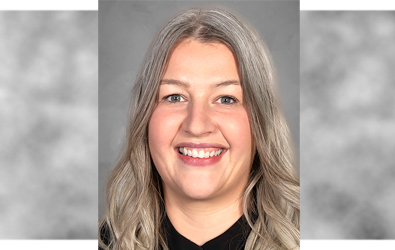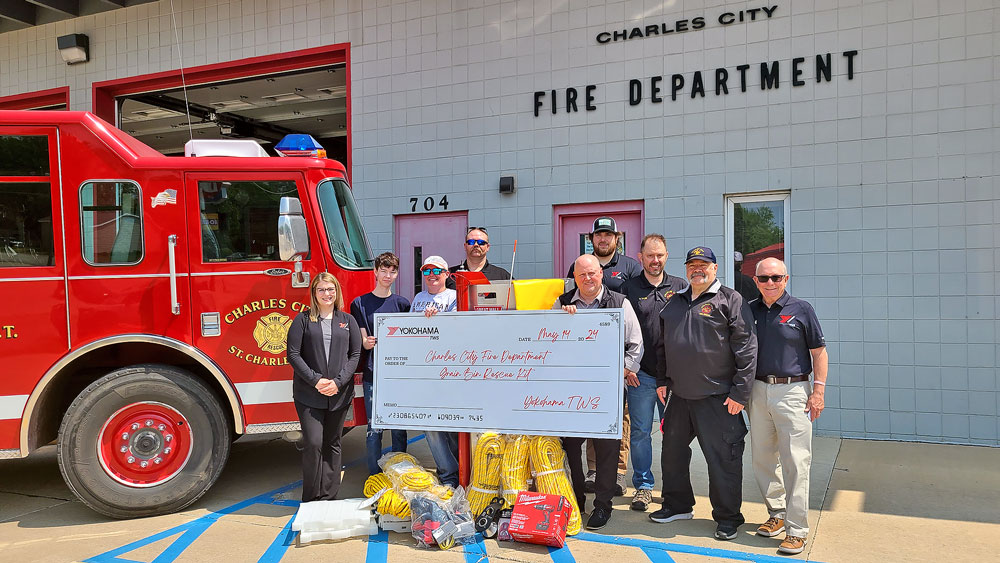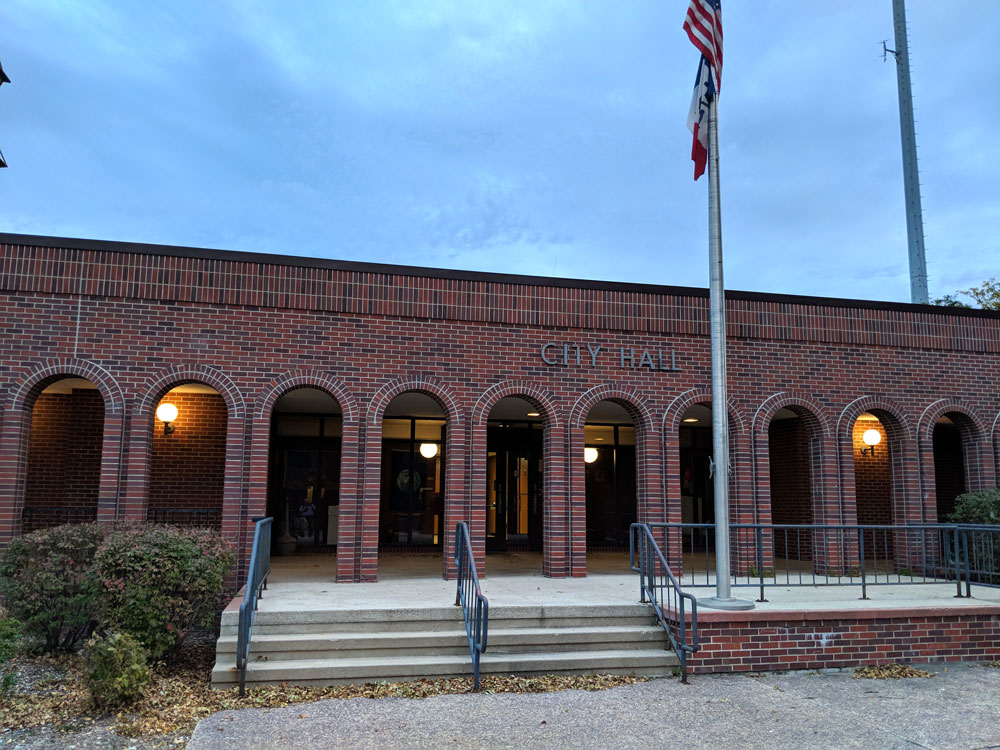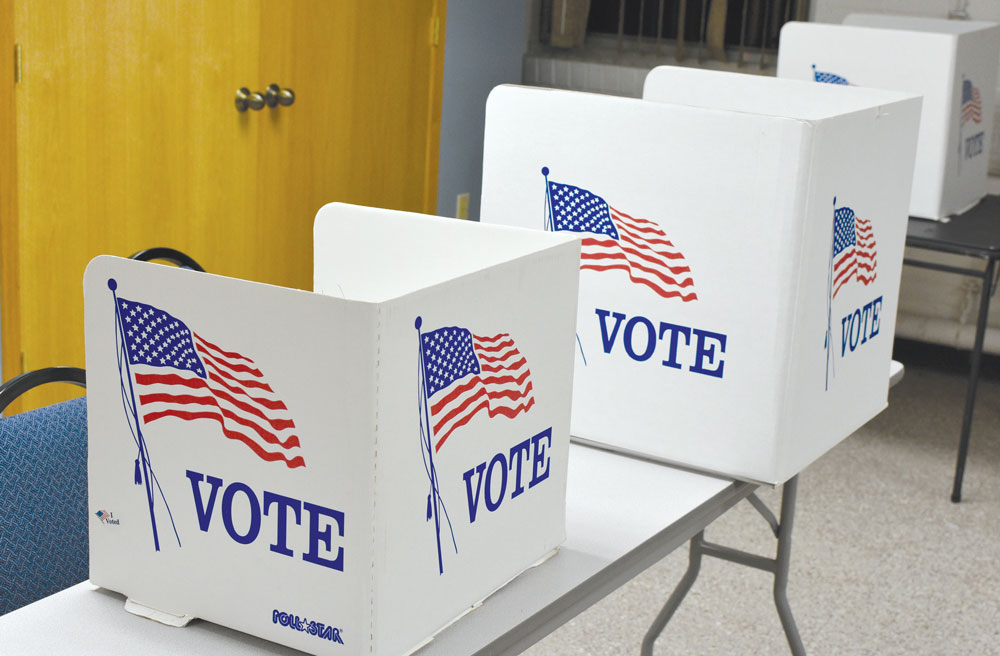Red Cross volunteer Coulson deployed to help with Ida

By Bob Steenson, bsteenson@charlescitypress.com
On Sunday afternoon, Red Cross volunteer Stewart Coulson was hunkered down in a hotel room in Baton Rouge, Louisiana, awaiting the arrival of Hurricane Ida. With forecasts of 100-plus mph winds and more than a foot of rain, he predicted it would be a long night.
“All kinds of things could happen. It could stall. It could turn. They’re so hard to predict, but right now that’s kind of what it’s looking like,” Coulson, of Charles City, told the Press in a telephone interview Sunday.
Ida, which is being called one of the most powerful storms to ever hit the U.S., made landfall Sunday on the southeastern coastline of Louisiana, just 45 miles west of where Hurricane Katrina had struck the area exactly 16 years earlier.
Coincidentally, Coulson’s work being deployed as a Red Cross volunteer had begun in the aftermath of Katrina.
This time he had been sent in advance, only the second time he has been pre-deployed before a pending natural disaster rather than responding to its aftermath, he said.
“Pre-landfall deployments are different. Most of my deployments are after the fire or after the hurricane or after the tornado,” he said.
“We do evacuation shelters pre-deployment. In after-deployment then we’re sheltering people that have lost their homes or lost their whatever, lost everything, so it’s more of a recovery mode after the storm,” Coulson said. “Before the storm it’s just get people out of harm’s way and give them a safe place to be until the storm is over.”
Coulson is designated DMH with the Red Cross— disaster mental health. The former school counselor’s primary focus is on helping the victims, as well as the Red Cross staff and volunteers, deal with the impact of a disaster.
But being a Red Cross volunteer means you end up doing anything that’s needed to help out, he said.
“Like yesterday, I was setting up cots and tables in a shelter, preparing for people. Everybody does whatever needs to be done,” he said. “Sometimes you drive an emergency feeding vehicle. … There’s so many different things that people do in Red Cross. There just isn’t anybody that can’t find a thing to do in Red Cross.”
Coulson said he was recruited by the Red Cross 16 years ago about two months after Katrina had hit.
“The staff was so tired and so worn out that they called, saying we need mental health down here to help us with everything that’s going on. My first deployment 16 years ago was specifically to help staff and volunteers get through the struggles and what they were having to deal with. Katrina was super awful,” he said.
To be in mental health in the Red Cross you have to be certified, Coulson said, “but we’re not doing therapy with people.”
“We’re mostly listening to their stories, helping them get the resources that they need. That’s kind of what our mission is, to help people recover — to do whatever needs to be done to help them recover,” he said.
The first thing is making sure people are safe and secure and their physical basic needs are met.
“And then we can talk about recovery resources and what they need to move on,” he said.
“Sometimes they’ve lost everything, so they need a driver’s license, they need legal papers, they need all those kind of things for identification. We help them with whatever they need to be able to get back to the point where they can return to work, take care of their families, do whatever they need to do to be successful,” he said.
“And it’s a long road to recovery, and we talk to them a lot about that. This isn’t going to be over in a day or two, but we want them to know they’re not going to be by themselves. We’re going to continue to help them as long as we need to help them.
“Maintaining hope is the biggest thing. We don’t want people to become despondent, we don’t want them to lose hope,” he said.
Coulson said many people don’t realize the number of places the Red Cross is responding.
In the U.S., he said, there are currently 57 disaster response operations going on. That includes Hurricane Ida, the wildfires in California, flooding in Tennessee, refugees arriving from Afghanistan who need shelter and help, multi-family apartment fires, the condo collapse in Miami, as well as more local events.
The week before he was deployed to Baton Rouge he had been helping two people who had to be evacuated from their apartment in Mason City because of a fire.
“They needed help, they needed a place to stay. They needed clothes, they needed food. We responded to that, too,” he said.
Because the Red Cross is being called to respond to so many events, Coulson said, it’s important that 97% of the people involved are volunteers.
Only 3% of the Red Cross workforce is paid staff, so almost all the funds donated to the Red Cross go to helping people with food and shelter survival needs, to be able to recover.
Coulson said the country and the world are good about responding to the needs of the Red Cross, but it can always use more — more volunteers and more donations.
“There’s so many different things that people do in Red Cross. There just isn’t anybody that can’t find a thing to do in Red Cross,” he said.
“I’ve worked with them for 16 years and it’s such a great organization that I just like people to know what Red Cross is doing, so if they can ever help, even by donating, it really is worthwhile.”
Red Cross seeks donations to help with hurricane response
To The Press
The red Cross reported that it has deployed about 600 volunteers on the ground supporting relief efforts from Hurricane Ida.
Across Louisiana and Mississippi, the Red Cross and other organizations have opened dozens of evacuation shelters offering safe refuge for hundreds of people, the organization said in a press release.
In addition to shelter, the Red Cross is providing cots, blankets and comfort kits, along with tens of thousands of ready-to-eat meals.
“This relief effort would not be possible without the generosity of our incredible donors,” the Red Cross said.
“Our Red Cross staff and volunteers are on the ground today providing immediate aid, shelter and critical resources. But your help is needed now to ensure we can continue to provide support to families and individuals facing the aftermath of this dangerous storm,” it said.
To make an online donation, go to www.redcross.org/donate/hurricane-ida-donations.html/.
Visit www.redcross.org/find-your-local-chapter or call 800-RED-CROSS (800-733-2767) to be connected to your local chapter.









Social Share